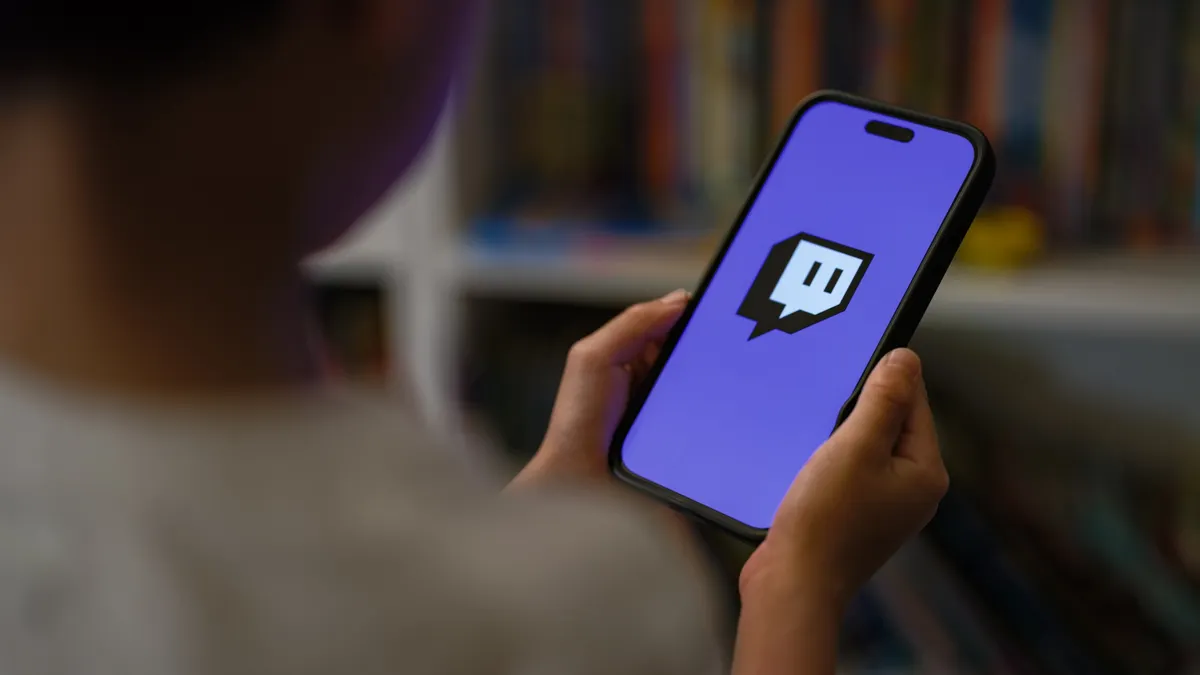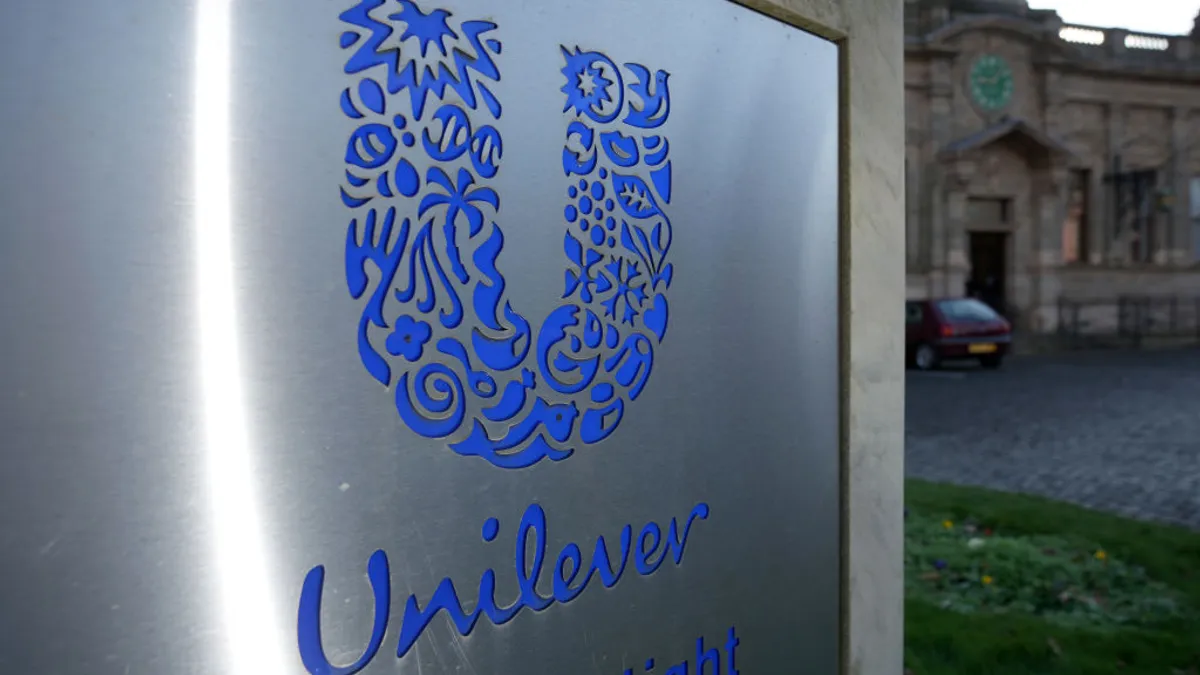The Olympics are a big hit on social media.
The major social media platforms have all rolled out special features and tools for users to enjoy during the games. See: Twitter’s Olympic emojis and hashtags, Facebook’s “Olympic photo frame” and country-based filters, and Snapchat's Olympic-themed filters, stickers and bitmojis. A study commissioned by Facebook before the games found that two-thirds of Facebook and Instagram users planned on seeking out Olympic content on Instagram and Facebook.
But while the Olympics are ready-made real-time marketing event like the Super Bowl or Oscars, brands that aren’t official Olympic sponsors aren't allowed to participate.
For non-sponsor brands, posting Olympic-themed content on social media is completely verboten, thanks to International Olympic Committee's (IOC) Rule 40. The rule outlines a long list of prohibited keywords, images and actions that marketers are not allowed to use. For brand marketers in the U.S., Rule 40 will be enforced by the U.S. Olympic Committee (USOC) under Code Chapter 2205, making violations of the code a federal offense.
The USOC sent letters to non-sponsor brands ahead of the games, warning them against violating intellectual property rights. "Commercial entities may not post about the Trials or Games on their corporate social media accounts," USOC CMO Lisa Baird wrote in the letter. "This restriction includes the use of USOC's trademarks in hashtags such as #Rio2016 or #TeamUSA."
Baird went on to say that brands "cannot reference any Olympic results, cannot share or repost anything from the official Olympic account and cannot use any pictures taken at the Olympics," ESPN reports.
“At its most basic interpretation, Rule 40 states that certain ‘official’ terminology surrounding the Olympic Games cannot be used on social media without written approval from the USOC,” Tim Howell, digital marketing strategist at R2integrated, explained to Marketing Dive. “Official hashtags, phrases like ‘Go for the Gold’ and even ‘Team USA’ are considered restricted."
But brands may be forgiven for being confused by the rules and where exactly to draw the line.
"Like any regulation written by a massive organization, the wording is actually pretty vague," Howell added. “Does the rule apply only to brands? Can we say ‘Rio’ as long as we don’t say ‘Rio 2016?’ It’s unclear. In theory, the USOC could use this rule as establishing a precedent in future court cases — basically giving them the ability to say ‘we warned you’ before doling out lawsuits.”
There two schools of thought on the IOC’s goal with Rule 40, Howell said. One is to simply stop big sportswear brands from using ambush marketing tactics to piggyback on the Olympics without having to pay a sponsorship fee. The second interpretation is that the rule is an attempt to limit the amount of negative publicity in the run-up to the Rio Games.
“The rule may actually be performing its intended function in the case of the first issue, but it has failed spectacularly in the second,” he said.
The USOC did not respond to Marketing Dive's request for comment at press time.
Is Rule 40 actually enforceable?
While it would be very difficult to track down — let alone enforce — violations as simple as a brand running afoul of the very long list of prohibited hashtags, Howell believes Rule 40 stands as a legal warning in case the USOC does pursue legal action against non-sponsor brands.
The IOC has made it clear it doesn't want anyone using their intellectual property in a non-approved fashion. By getting the rule out in the open before the games began, the IOC might have pushed the legal odds in their favor, Howell said, with the international aspect of the games only making things more complicated.
But Howell believes that Rule 40 is a mistake and comes at a bad time for the Olympics.
“The Olympic Games are very much suffering a branding crisis right now,” he stated. “The Rio games have been highly politicized, heavily protested, and largely mocked online. Restricting conversations — or attempting to — gives the organization the appearance of hiding something. This only adds fuel to the social media fire, reinforcing the idea that this is a massive and corrupt organization with no concept of reality.”
The real-time nature of social media lends itself to following sporting events — and that's not something that the USOC can exactly control.
“Forget second screen, Twitter is the first screen — and the USOC is deliberately trying to ignore it. It reminds me of Blockbuster back in the early Netflix days,” he stated. "[There's] simply no better way to follow sports than Twitter, and that’s coming from someone that doesn’t particularly love Twitter."
Done correctly, a well-planned social media integration would have been the perfect way for the USOC to capture online activity, such as complaints about NBC's coverage of the games.
“Social media could have been the ticket to consumer trust, transparency, and a renewed faith in a future-facing Olympics," he added. "Now we just have another piece of evidence that the Olympic Games are an old-fashioned event that don’t mesh with modern life.”
How should marketers approach Rule 40?
The biggest problem with Rule 40 is its vagueness.
A solution could have been providing a clear list of prohibited hashtags for non-sponsor corporate brands. Instead, the rule includes guidelines that imply some hashtags and actions might be a violation without clearly specifying what is — and isn’t — prohibited, such as Howell’s example of “Rio” versus “Rio 2016.”
Despite the issues surrounding the rule, brands should still take care to honor Rule 40 this year, Howell said,
Perhaps 99 out of 100 brands will never be punished for breaking the rule, he added, but there’s no way to tell who will be punished and who won't. Howell said he isn’t willing to risk that any of his clients might be in the 1% that get served with a cease-and-desist order for what might be a marginal uptick in Facebook engagement.
But brands should pay attention to the cultural memes that happen during the Games — the “Michael Phelps death stare” and the “Lilly King finger wag” are two early example — and incorporate Olympic themes and feelings into messaging without running afoul of the USOC's guidelines.
“I think a lot of marketers look at the Olympics the same way they look at the Super Bowl — it’s as much about the campaigns as it is about the event,” said Howell. “That’s overall a mindset that I just don’t agree with. Your campaigns shouldn’t be about The Games, they should be about people.”
Marketers can take advantage without resorting to banned practices by tapping into the feelings and emotions around the event, Howell said.
“The Olympics make people feel excited, patriotic, inspired, empathetic," he said. "Those aren’t concepts that rely on approved hashtag lists. Social networks absolutely see more activity during massive global events, like this one, so it is imperative that brands are active in that space — they just need to do it in a smart and human way.”
Large governing bodies — and many large brands — fail to understand the core concept of social media and how it belongs to the users, Howell said.
“Is my brand liable because someone retweeted me using #Rio2016? We don’t know,” he said. “The USOC is effectively asking the world to not talk about the largest event of the year unless we’ve paid them for the right to do so.”

















